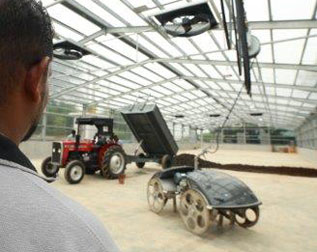MAS converts sludge to bricks
Companies that depend on water for their operations such as MAS also
recognise that the responsible use of water is a key business issue. As
a key consumer of dyes and colours, the apparel and fabrics industry
also uses significant amounts of water.
|

Built at a cost of USD 450,000, the new sludge drying
facility will help MAS to manage 1,600 tonnes of wet sludge
per
year by reducing it to 550 tonnes of dry sludge that will
then be used as a co-processing fuel under strict controls. |
MAS began extensive research and development to create a long term
solution for the problem of Effluent Treatment Plant (ETP) Sludge. So
began the Great Brick project at the MAS Fabric Park (MFP) in Thulhiriya
which has become one of the group's most sustainable initiatives towards
zero landfill. After months of intense R&D the teams achieved a
breakthrough which turned ETP sludge into eco bricks.
Since then MFP has perfected the process and has converted all its
sludge to thousands of bricks.
MAS expanded the breakthrough project to the Biyagama Industrial Zone
with the construction of a solar sludge dryer. CEO, MAS Fabric Park,
Misver Deane said, "We want to stop the malpractice of dumping ETP
sludge. The harm done by effluent waste seeping into our groundwater is
a national problem and threatens future water resources."
DGM, Hydro and Environment, MAS Fabric Park, Harsha Deraniyagala
said, "This is the first industrial greenhouse aided solar drying model
implemented in Sri Lanka, based on optimized thermo-dynamic controls
initiated by online climatic condition sensing, throughout the year."
|

